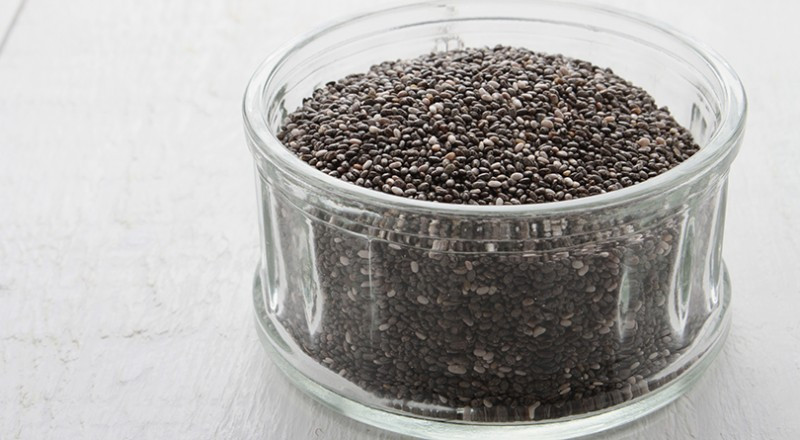Seeds are good. Naturally, as the beginnings of plant life, many types of seeds are packed with vital nutrients that contribute to the organic processes that sustain life. As explained at
health.harvard.edu, seeds are good sources of healthy fats, fiber, plant-based proteins, and a wide variety of other helpful nutrients. Given this variety of good nutrients, seeds provide a variety of potential natural health benefits.
What Are Seeds?
Per
draxe.com, seeds are defined as embryonic plants surrounded by a protective outer coating. The outer coating of a seed is designed to protect the inner embryo from outside elements until a seed lands in the ground, where it is likely to sprout. Nuts and beans are sometimes categorized as seeds, but while those have potential health benefits as well, they are different from culinary seeds. In this article, we discuss seeds that are distinct from nuts, beans, grains, and other ingredients.
How Can I Use Seeds to Boost My Diet?
Incorporating seeds into your diet is easier than you might think. It doesn't take large amounts of seeds to make a meaningful contribution to a balanced diet. According to
Dr. Axe, a serving or two of seeds (usually an ounce or less) in a given day is enough to reap the benefits. However, it is important that you have a healthy and balanced diet in order to properly reap the benefits of eating seeds.
Seeds make for a great textural addition to various meals. They can be added to oatmeal, salads, yogurt, and even baked bread. Another way to reap the benefits is through seed oil supplementation. Many types of seeds have been made into a condensed oil (such as chia seeds and flax seeds), and some people might prefer to simply take a supplement rather than add seeds into their meals. Here is a look at some of the best and healthiest seeds to add to your diet.
Seeds Most Likely to Benefit You
Chia seeds: Per
Dr. Axe, chia seeds are one of the most fiber-rich seeds available. These tiny seeds are a great source of plant-based proteins, as well as multiple nutrients, including calcium and manganese. The nutrients in chia seeds are of potential benefit to your bones, your digestive system, and your overall health. As one of the healthiest and most well-known seeds, chia seed oil is a common find.
Pine nuts: Despite their name, these are indeed seeds, harvested from various types of pine trees. Pine nuts contain copper, magnesium, and Vitamin K. These seeds can be of potential benefit to your bones, as well as to brain function, and can help maintain proper blood clotting.
Flax seeds: Nutritionist Heather Goesch of
foodandnutrition.org says flax seeds are rich in fiber and omega-3 alphalinolenic acid, a nutrient known for its benefits to the heart. Flax seeds come in golden and brown varieties, but there is not much difference between the two. She recommends grinding these seeds up before consuming them to enhance absorption. Flax seed oil is also a good alternative.
Pumpkin seeds: Also known as pepitas, these larger seeds are an excellent source of plant protein, says Heather Goesch. Additionally they are a significant source of monounsaturated fats (good for the heart), as well as magnesium, phosphorus, iron, and zinc. Pumpkin seed oil is commonly available, as well.
Quinoa: These seeds are sometimes considered a grain because of the way they are often prepared, according to
draxe.com. These hearty seeds are a great source of plant-based protein, and B Vitamins, and are thought to help promote muscle and nerve function.
Hemp seeds: According to
medicaldaily.com, hemp seeds are a good source of various nutrients including antioxidants, as well as omega-3 and omega-6 fatty acids. They also contain a high amount of fiber, and are therefore thought to help reduce excessive appetite and boost weight loss. Lastly, they contain all nine of the essential amino acids, per
foodandnutrition.org, so they are an excellent source of protein.
Sunflower seeds: These seeds are a fairly common snack, and they can help maintain good cholesterol levels as well, per
draxe.com. Sunflower seeds contain Vitamin E, thiamine, and manganese. They are cheap and easy to find, too.
Sesame seeds: These small seeds (also known as benne seeds) are rich in iron and calcium. They are great for baking. Sesame seeds can sometimes be found in oil-supplement form, as well.
Poppy seeds: These seeds are also commonly used in baking. They have the potential to improve digestive health and bone health, due to the fact that they contain fiber, manganese, and calcium. They also may help encourage weight loss, per draxe.com.

